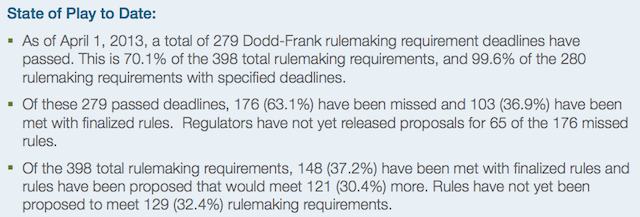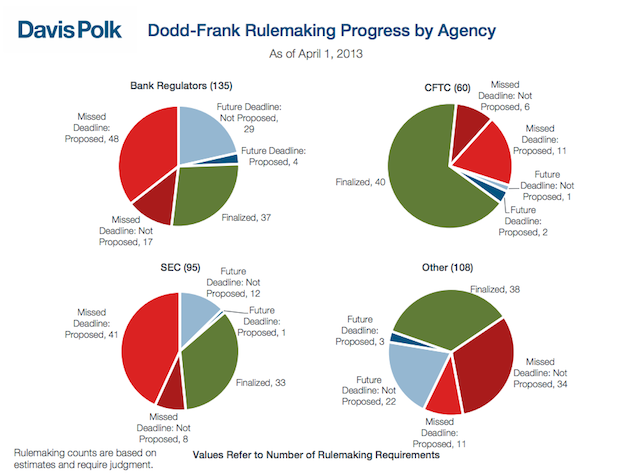The Obama Administration has continued its aggressive prosecution of suspect players in the financial meltdown that shaped most of the President’s first term.
Four mortgage insurers, including an AIG subsidiary, have agreed to a $15 million settlement over allegations of improper ‘kickbacks’ paid to lenders for more than a decade. The Consumer Financial Protection Bureau made the announcement today. Its director, Richard Cordray, charged, “We believe these mortgage insurance companies funneled millions of dollars to mortgage lenders for well over a decade.” For more, see the NYTimesand WSJ.
Also today, the U.S. Department of Justice filed a fraud suit against Golden First Mortgage Corp, alleging the company and its CEO “repeatedly lied” to the government. The complaint claims that Golden First rushed paperwork through internally, although the company certified (to HUD and the FHA) that proper due diligence had been conducted. According to the government, Golden First used three employees to process 100-200 loans per month—predictably leading to “extraordinarily high” default rates as high as 60% in 2007. For more, see Thomson Reuters.
On a related note, district court Judge Victor Marrero (S.D.N.Y.) indicated that he may not accept a “neither admit nor deny” provision in SAC Capital Advisor’s insider trading settlement. At a hearing last week, he made a point unlikely to encounter much resistance: “There is something counterintuitive and incongruous in a party agreeing to settle a case for $600 million that might cost $1 million to defend and litigate if it truly did nothing wrong.” Judge Marrero is not the first to question these clauses – commonly demanded by corporate litigants – but his remarks demonstrate a growing judicial skepticism with the practice. For more, see Businessweek, Reuters, and The New Yorker.

